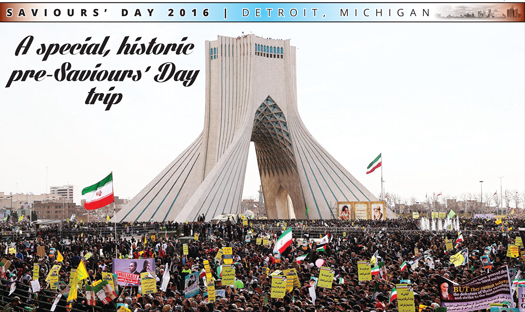The White House Guantanamo Detention Center plan calls for transferring another 35 detainees to other countries and shifting the remaining 56 to US-based facilities. These guys really want to give up top notch healthcare, food, housing and soccer?
In 2009: TheHill: The House instructed conferees negotiating with the Senate on a final version of the Homeland Security spending bill to include language prohibiting the transfer of Guantanamo detainees to U.S. soil. The bill already includes a provision prohibiting the detainees from air travel within or to the United States.
Appropriators have placed Guantanamo provisions into at least four other bills. The Senate Defense spending bill, which has yet to pass the chamber, and the House-approved version would also block the use of federal money for the transfer of detainees to the United States. The House Commerce, Justice and Science appropriations bill and the State Department spending bill would block 2010 federal funding for the closure of the prison. Those bills have been passed by the House and are awaiting Senate action. *** The Senate did confirm and Obama signed it into law as it was in the spending bill. Note the year, this was a Democrat controlled Congress. If Obama does move forward in any method, he will have to sign a waiver of the law and then a Constitutional crisis begins as the military knows this is a law. Does the military comply with the Commander in Chief or do they comply with the law?
Then again in 2010:
Congress Bars Gitmo Transfers
A defense authorization bill passed by the House and Senate included the language on the offshore prison, which President Barack Obama tried unsuccessfully to close in his first year in office.
*** Then again this month, February 2016:
Military Tells Congress It Can’t Send Gitmo Detainees to U.S.
Bloomberg: Just as President Barack Obama is planning to send Congress his plan to close the Guantanamo Bay prison this year, leaders of the military say it will not transfer any detainees to the U.S., unless the law prohibiting such transfers is changed.
Lt. General William Mayville Jr., the director of the Joint Chiefs of Staff, said as much in a letter to Congress last week, which I obtained. Mayville’s letter gets to the heart of a knotty constitutional issue on Guantanamo: Does President Obama have the authority to close the facility without the consent of Congress?
Writing to 16 House members who served in the military, Mayville writes: “Current law prohibits the use of funds to ‘transfer, release or assist in the transfer or release’ of detainees of Guantanamo Bay to or within the United States, and prohibits the construction, modification or acquisition of any facility within the United States to house any Guantanamo detainee. The Joint Staff will not take any action contrary to those restrictions.”
Start here and this was today further telling how reckless the whole release thing really is:
4 Arrested in Spain, Morocco for IS Armed Group Ties
ABC: Spanish and Moroccan police on Tuesday arrested four suspected members of a jihadi cell that sought to recruit fighters for the Islamic State group, including one described as a former Guantanamo detainee who once fought with militants in Afghanistan.
Three people were arrested in Spain’s North African enclave city of Ceuta while a Moroccan was arrested in the Moroccan border town of Farkhana, next to Melilla, Spain’s other North African enclave, statements from the two nations’ interior ministries said.
One of those detained in Ceuta was the former Guantanamo detainee who was not named by Spanish authorities but described as “a leader who was trained in handling weapons, explosives and in military tactics.” After being captured in 2002 and held in Guantanamo, he was returned to Spain in 2004, said Interior Minister Jorge Fernandez Diaz.
Another suspect was the brother of a fighter who blew himself up during an attack in Syria and man detained Tuesday “was inclined to do the same thing,” he said.
The suspects had set up contacts to try to acquire weapons and bomb-making materials and were aiming “to carry out terrorist acts in Spanish territory,” the Spanish ministry statement said, without specifying possible targets.
They also worked to recruit teenagers from Ceuta to join IS in Iraq and Syria, the Spanish statement said.
Spanish police arrested about 100 suspected Islamic extremists last year and more than 600 total since the 2004 train bombings in Madrid that killed 191 people and injured nearly 2,000.
Rubio: Today, In the Senate, I have sponsored and supported legislation to prohibit dangerous detainee transfers, block funds for closing the prison at Guantanamo Bay, and prevent the return of the facility to Cuba. And I have stood with Senators Tim Scott (R-SC), Cory Gardner (R-CO), and Pat Roberts (R-KS) to oppose bringing terrorists to facilities in South Carolina, Colorado, and Kansas, because it is unnecessary, expensive and, most importantly, dangerous.



